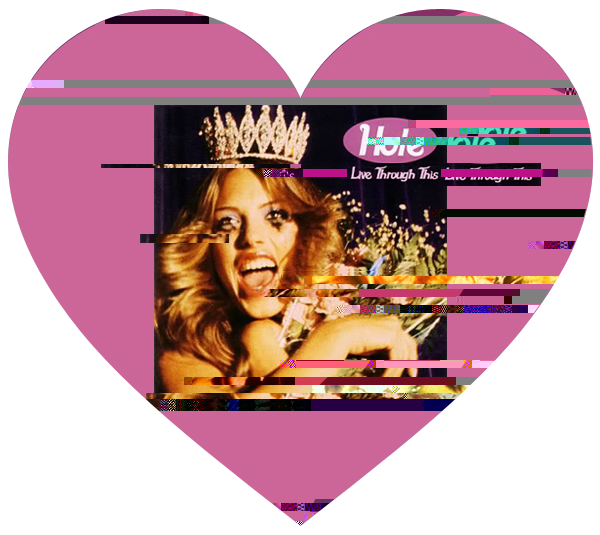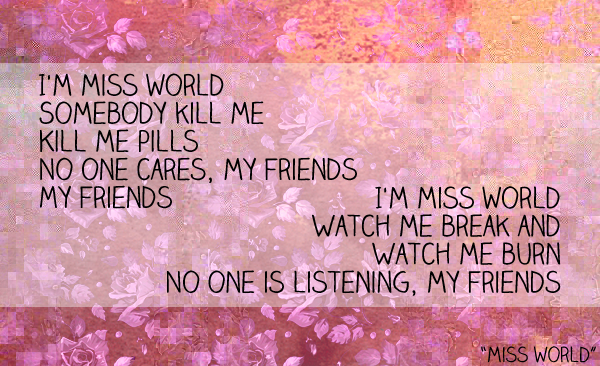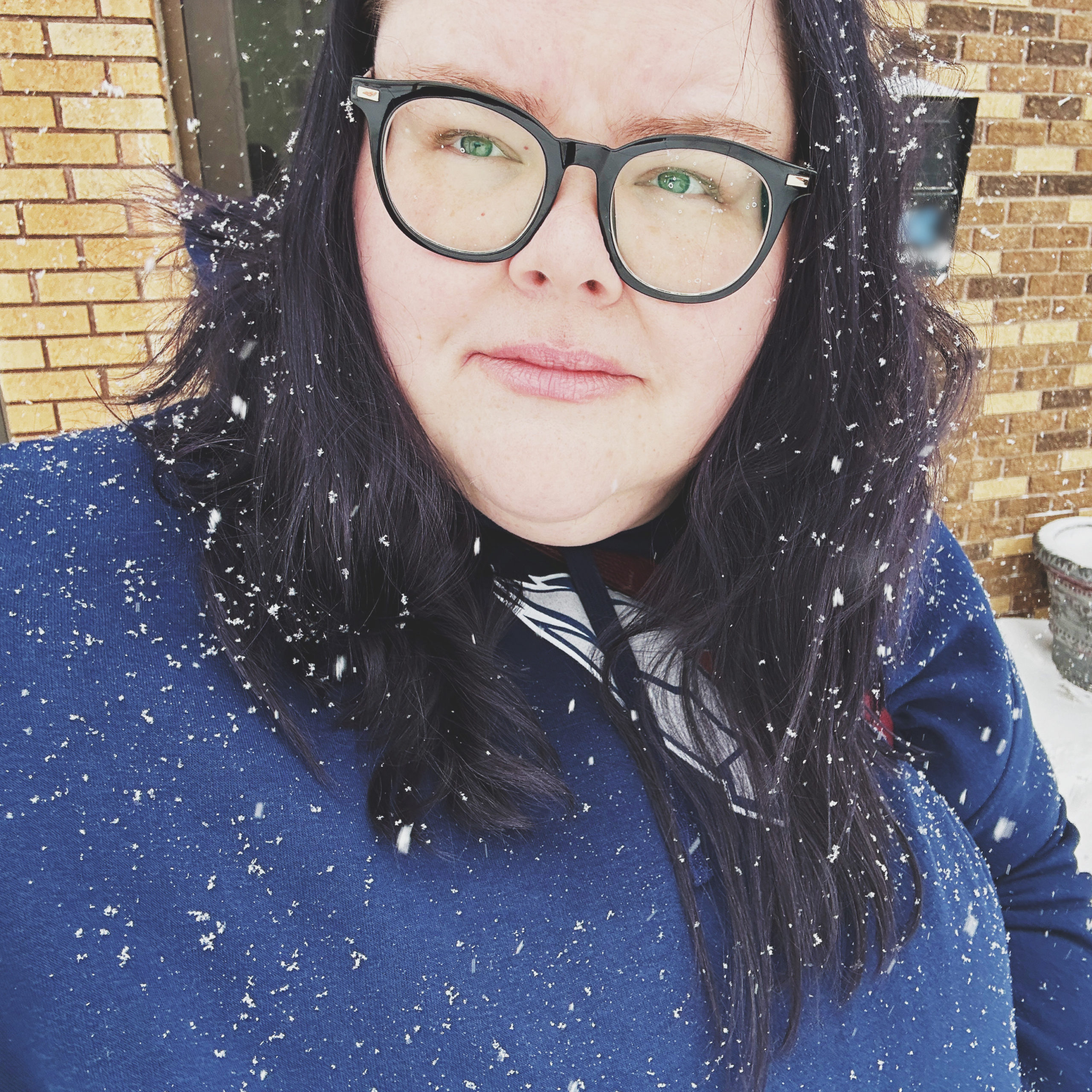
Nineteen years later, I am twenty-eight years old and just about to finish up my first year in a new state. I’m no longer tall for my age, but I am still fat and smart(ish). Music is still the first thing I ever really loved, but I’m in a serious relationship with television at the moment. My idea of what “someone” is has changed dramatically and I’m okay with how I turned out most days.
Nine years old seems insanely young to me now, impossibly young — too young for Hole probably, too young for anything, honestly. But I grew up with wonderful, involved but permissive parents and KROQ and the Los Angeles alt-radio culture of the mid-90s, so young or not, I first found my footing as a human being in Green Day and Candlebox and Nirvana and Tori Amos and The Offspring and Alanis Morrissette and Soundgarden and Alice in Chains. And Hole.

I remember being angry — so angry — at so much, at everything. Angry at nine and at twelve and at fifteen and at twenty. Angry at myself for being fat and weird. Angry at the kids who were mean to me and at myself for being impossibly meaner back. Angry at the people who didn’t listen when I was hurting, angry at myself for getting hurt, for letting other people hurt me. Angry at the world in the most uncomplicated ways, the most individual. I was angry because I was hurt.

I couldn’t have told you in 1994 when I bought it on cassette at Tower Records at the West Covina Plaza or a couple years later when I bought it on CD at the same Tower Records or a year after that when I had to rebuy it because I’d worn my first copy out or when I rebought it digitally because I couldn’t take the skips from my ripped copy any longer — I’d have probably just said I liked it a lot because Green Day was my favorite band and I would’ve felt like a traitor — but Live Through This was the most important album of my youth. And nineteen years later it means more to me than ever.
I didn’t call myself a feminist in 1994, partially because I was nine years old and I didn’t really know what that meant and partially because I was raised by a father who called feminists “feminazis” and if there was one thing I wouldn’t have wanted to do in 1994, it was disappoint my father. I didn’t call myself a feminist in 2004 either because I was raised by a culture that taught me that feminism meant female superiority and that I should strive for something my conservative poli-sci professor called “equalism” but was actually code for the patriarchal bullshit status quo. I call myself a feminist now and I try very hard to be a good one, an intersectional one, an engaged one.
But I’m also angry. Still angry, so angry. And where my anger was indistinct and personal when I was young, anger built on hurt and sadness, it is anger directed at the system now, at patriarchy and rape culture and misogyny. At the incredible violence women face, institutional and political and personal.
Before I really knew why I was angry, Hole gave me a voice for it. Before I understood what it meant when a boy with a blond bowl cut chased me and my best friend around the playground at my first elementary school and flipped our skirts up, laughing, I was angry. Before I understood why a yard aid pulled me aside and told me not to play on the monkey bars because my shirt was “too short” and everyone was looking, I was angry. Before I saw the aggressive challenges from boys in high school because “girls don’t like metal” as acts of sexism, I was angry. And even though I didn’t really know it, Courtney Love was shaping that anger, asking questions that I wouldn’t understand for years, and planting the furious seeds of something that would shape me monumentally as an adult.
As an adult, that anger raged, rages through me every day. Every time I see another woman sliced open on a television or movie screen. Every time I’ve been groped or catcalled or hit on through the open windows of my vehicle. Every story I hear about street harrassment. Every time a politician thinks they have a right to make rules about what people can or cannot do with their uteruses. Every single time I’ve heard “Nice tits” or “That mouth would look great around my dick” or “You’re fat but I’d still fuck you.” Every story about assault or rape or abuse.





